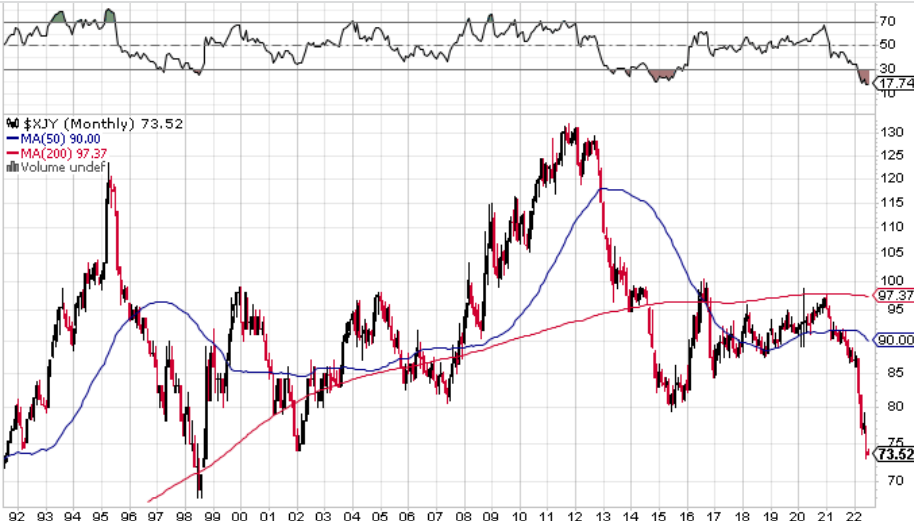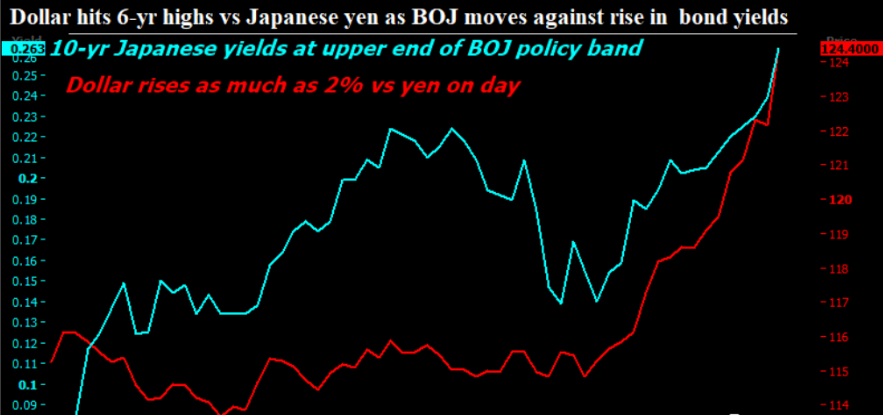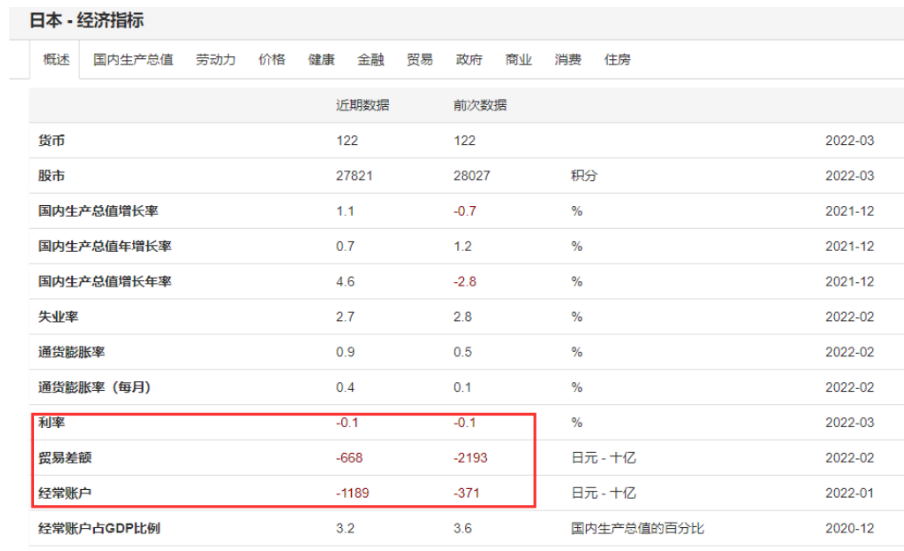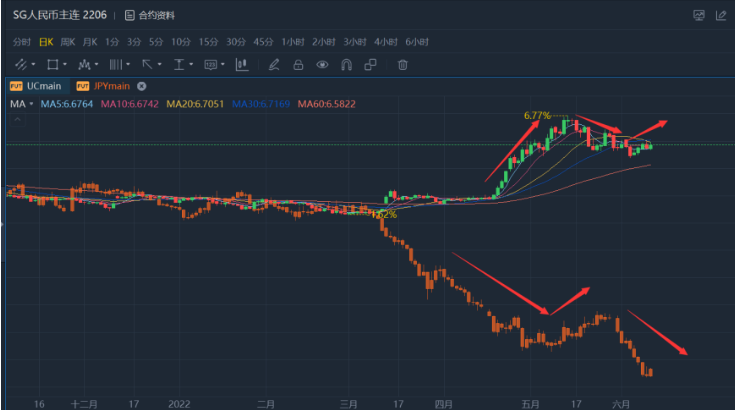As we all know, the Nikkei index has suffered a crazy decline for a long time ,what‘s more,the Japanese yen has fallen below the bottom of 2002. Due to the recent easing of Asian CPI, the oversolded Japanese yen began to short cover and rebounded for a while.
The sharp fall of the yen and the local Japanese stock market is clearly reflects Japan's local Japanese crisis,The crisis even led to the killing of the prime minister
Debt accumulation
Japan has long been known for its debt finances, with its debt-to-GDP ratio at 266%,
This directly led to the kidnapping of the country's fiscal and monetary system by huge external liabilities. Under the pressure of a strong dollar, All countries are under pressure from the return of foreign capital, After the Ukrainian-Russian war started, The Federal Reserve also announced that it would insist on raising interest rates, and the return of safe havens caused by the recent recession gave the high dollar more strength to rise, which actually gave an official expectation that the dollar would continue to appreciate. At this time, instead of raising interest rates, the Japanese government began to purchase unlimited bonds to ensure the yield of Japanese government bonds. It doesn't make sense for the yen not to depreciate
Imagine what you would do if you knew that Japan could not raise interest rates and that the US dollar would definitely appreciate in the future?
Of course, you will follow the trend of selling yen and buying dollars. It will lead to a Short squeeze in the US dollar and a long squeeze in the Japanese yen.
At present, the spread between the Japanese yen and the US dollar is getting bigger and bigger, which has forced the yield of Japanese government bonds to rise again, which in turn forces the Japanese government to increase its efforts to buy government bonds.
At present, the amount of Japanese government bonds held by the Bank of Japan accounts for more than half of the total circulation: the huge amount of bonds purchased has once again pressured the yen to depreciate, which has formed a vicious circle.
The increase in the yield of national debt means the increase in interest and the further expansion of fiscal deficit, and the benchmark yield of 0.25% of 10-year Japanese debt is also the bottom line for a large number of foreign investors to hold Japanese debt.
Therefore, in order to maintain the yield of Japanese debt, the Japanese central bank has to continue to implement the strategy of unlimited bond purchase, which is tightening all over the world. In the case of QT in the United States, it is a very dangerous action, which will only make the yen depreciate even more.
Let's look at the dilemma facing the government next day:
At present, the nominal interest rate in japan has been reduced to negative, and there is a large deficit in trade, which means that high-priced raw materials and energy commodities will exert imported inflationary pressure on Japan.
The current account and government budget are both negative, and both foreign trade and finance are in deficit! This has almost decided that Japan will not be able to protect itself from the coming storm of a strong dollar and high prices.
As we all know, the exchange rate reflects the parity purchasing power of a country's currency. When Japan's prices soar, its foreign debt is high, its foreign exchange reserves are constantly losing due to trade deficits, and its domestic government starts to buy bonds indefinitely, even the yen with safe-haven attributes can't escape the fate of being shorted by foreign capital:
The Japanese government is making a big bet, and enterprises are under the greatest pressureForce
The Japanese government is making a huge bet that the huge imported inflationary pressure of energy and industrial raw materials will not be conducted into Japanese CPI. But is this possible?
The Japanese government believes that as long as prices do not get out of control, the orderly depreciation of the yen is beneficial, and there is no risk that Japan's link in the global capital chain will break.
On the one hand, the depreciated yen raises the price of goods imported by Japan, but on the other hand, it also lowers the global price of Japanese goods and improves the trade competitiveness of local enterprises.
As long as other countries do not increase tariffs on Japan, it is possible to increase the profits of Japanese export enterprises, increase wages and stabilize the problem of imported inflation in Japan.
This idea is too risky. In fact, the Japanese government is forcing Japanese enterprises to raise wages without raising product prices, and at the same time absorb higher-priced imported raw materials and digest them in the production process.
Therefore, the scissors difference between PPI and CPI in their country has been widening, which is not a sustainable strategy.
Think about it, besides Toyota, Honda, Mitsubishi and Sony, what other manufacturing industries can be exported in Japan? Apart from manufacturing, the industries that account for the largest GDP are more tourism and service industries. Under the impact of Y sentiment, Japan's tourism and service industries have suffered a great impact. Is it possible to digest huge imported inflation through limited production appreciation?
Beware of the shock wave of Japan's collapse!
However, once Japan's prices get out of control, it is very unlikely that it will rely on its own government to stabilize exchange rate fluctuations and compete with international bears.
With more than $6.6 trillion in foreign exchange trading per day, the yen is arguably the least traded currency in the world, and the Japanese government's foreign exchange reserves will be unsustainable at that time.
Fortunately, Japan is still the largest creditor country in the world. Because of the unrestricted investment, the borrowing cost of yen is extremely low, and a large amount of yen is invested all over the world
So the only option for the Japanese government is to intervene in the depreciation of the yen by selling dollar assets before inflation gets out of control, as they did in 2011.
This will exert upward pressure on US bond yields, and then affect the US economy, but we will analyze the specific impact later.
More importantly, if the yen collapses out of order, it will definitely trigger fluctuations in the amount of funds in the Chinese market. The most sensitive one is the trend of RMB.
You should note that the brown line in the figure shows the trend of Japanese yen against US dollar, and the depreciation of Japanese yen shows the lower value, while the red-green K line shows the trend of US dollar against RMB, and the depreciation of RMB shows the higher value. Have you found that the trend of RMB and Japanese yen has almost synchronized in the past year or so.
Therefore, if Japanese prices do not hold, the yen does not need to depreciate at first, which will be a big exchange rate shock.
However, from the current point of view, the process of orderly depreciation of the yen may not be over yet, It is possible that the oversold rebound will continue for a while, but if the yen collapses, the secondary market in China may also be affected..
$Japanese Yen - main 2209(JPYmain)$ $E-mini Nasdaq 100 - main 2209(NQmain)$ $Gold - main 2206(GCmain)$ $Light Crude Oil - main 2208(CLmain)$ $E-mini S&P 500 - main 2209(ESmain)$




Comments